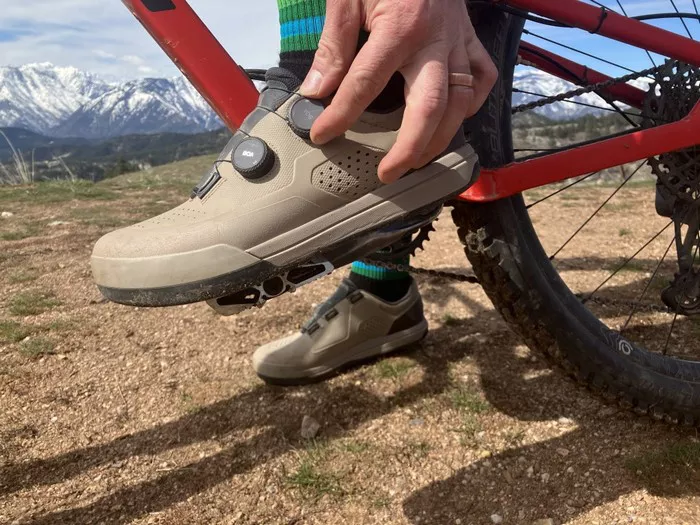When it comes to maximizing your Peloton experience, selecting the right shoes is crucial. This guide will provide a comprehensive overview of the best shoe options for Peloton, along with detailed fit tips to ensure both comfort and performance.
Understanding Peloton Shoe Requirements
Peloton bikes use clipless pedals, meaning your shoes must have compatible cleats for secure attachment. The two primary cleat systems are SPD-SL and Look Delta, which are widely used in the cycling community.
Shoe Types for Peloton
Cycling Shoes
Design and Features: Cycling shoes are engineered for efficiency, featuring a stiff sole that enhances power transfer during pedaling.
Cleat Compatibility: Ensure the shoes can accommodate SPD-SL or Look Delta cleats, which will clip into the Peloton pedals.
Ventilation: Look for breathable materials to keep your feet cool during intense rides.
Cross-Training Shoes
Versatility: While cross-training shoes can be used for various activities, they may not provide the same power transfer as dedicated cycling shoes.
Comfort: Some users prefer these for versatility, but they should still accommodate cleats and offer sufficient stiffness for cycling.
SEE ALSO: What is Swift Cycling?
Top Recommendations for Peloton Shoes
Peloton Cycling Shoes
Overview: Designed specifically for the Peloton bike, these shoes offer a perfect fit with included Look Delta cleats.
Comfort Features: They typically feature a mesh upper for breathability and a snug fit.
Shimano SH-RP1
Affordable Option: A budget-friendly cycling shoe that provides comfort and decent performance.
Compatibility: Works seamlessly with Look Delta cleats and has a secure closure system.
Giro Techne
Lightweight Design: Known for their lightweight and breathable construction, these shoes keep your feet comfortable during long rides.
Performance: Offers great compatibility with SPD-SL cleats and features a stylish look.
Sidi Genius 7
High-End Quality: Made with durable materials, these shoes offer excellent adjustability and fit.
Performance Features: The stiff sole provides optimal power transfer for serious cyclists.
Northwave Origin
Comfort and Fit: Offers great stiffness for performance while maintaining comfort with ample padding.
Versatile Compatibility: Works with both SPD-SL and Look Delta cleats, making them a flexible choice.
Fit Tips for Peloton Shoes
1. Know Your Size
Measure Accurately: Measure your foot size using a brannock device or a ruler. Take note of both length and width.
Sizing Variations: Different brands may have slight variations in sizing. Always refer to the brand’s specific size chart.
2. Try Before You Buy
In-Store Fitting: If possible, try on shoes in-store to gauge comfort and fit. Bring your own socks for a more accurate fit.
Check for Movement: Your toes should lightly touch the front of the shoe without being cramped.
3. Consider Width
Width Options: Many brands offer narrow, regular, and wide options. Choose based on your foot’s width for a snug fit without pressure points.
Test the Fit: After putting on the shoes, stand up and flex your feet to ensure they fit comfortably.
4. Check for Stiffness
Importance of Stiffness: A stiffer sole allows for better power transfer, which is crucial for efficient cycling.
Flex Test: Press down on the shoe’s toe; it should resist bending to ensure proper stiffness.
5. Look for Adjustability
Closure Systems: Look for shoes with adjustable straps or BOA systems, which allow for a customized fit that can be tightened or loosened easily.
Comfort Over Time: As you ride, your feet may swell; having adjustability can enhance comfort during longer sessions.
6. Don’t Forget the Socks
Material Matters: Choose breathable, moisture-wicking socks to prevent sweat build-up.
Fit: Make sure your socks fit well and don’t bunch up inside the shoes, as this can cause discomfort.
Installing Cleats on Your Peloton Shoes
1. Positioning Cleats
General Placement: Cleats should generally be placed under the ball of your foot to optimize power transfer.
Adjust for Comfort: Experiment with slight adjustments to find the best angle and position for your feet.
2. Tightening Cleats
Secure Fit: Ensure cleats are firmly attached to prevent them from moving during rides. However, don’t overtighten to avoid damaging the shoe material.
Visual Check: After installation, visually inspect the cleats to ensure they sit flat against the shoe.
3. Test Before Riding
Clipping In: Before your first ride, practice clipping in and out of the bike to get comfortable with the system.
Adjust if Needed: If you experience discomfort while clipped in, revisit the cleat positioning for adjustments.
Common Questions About Peloton Shoes
Are Peloton shoes necessary?
Enhancement of Experience: While you can use regular shoes, cycling shoes enhance performance due to their design, offering a better connection to the pedals.
Can I use any cycling shoes with Peloton?
Compatibility Matters: Yes, as long as they accommodate Look Delta or SPD-SL cleats, ensuring you can securely attach them to the Peloton pedals.
How do I clean my cycling shoes?
Regular Maintenance: Use a damp cloth for the exterior to wipe off dirt. Avoid soaking the shoes in water.
Insole Care: Remove insoles if possible and clean them separately to maintain freshness.
How often should I replace my cycling shoes?
Wear and Tear: Replace them when you notice significant wear, loss of support, or discomfort, typically every 1-2 years with regular use.
Conclusion
Choosing the right shoes for your Peloton bike can greatly enhance your cycling experience. With the right fit and style, you’ll enjoy better performance, comfort, and efficiency. Whether opting for Peloton’s specialized shoes or exploring other high-quality options, ensure they meet your cycling needs. Happy riding!
Related topics:
- What Is a Good FTP for Cycling?
- What Cleats Do Pro Cyclists Use?
- What Type of Cycling Shoes for Peloton?

